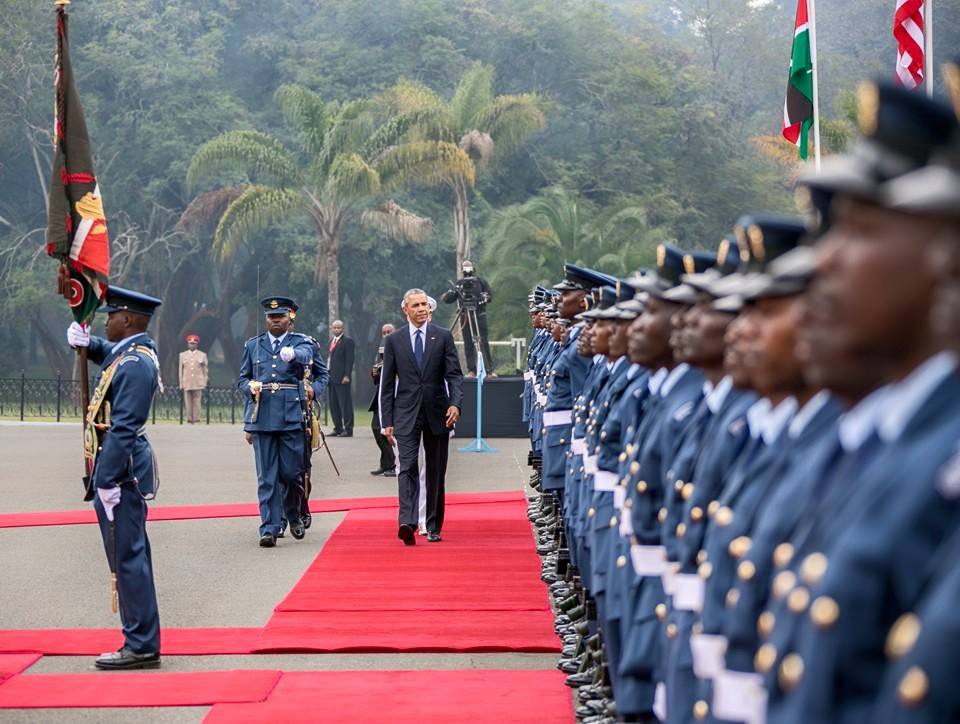Obama commits U.S. to intensified fight against terrorists in East Africa

NAIROBI — President Obama on Saturday committed the United States to an intensified fight against terrorists in East Africa, announcing here that his administration would expand support for counterterrorism operations in Kenya and Somalia, including increased training and funding for Kenya’s security forces.
“We have to keep that pressure going even as we’re strengthening the Somali government,” he said at a joint news conference with Kenyan President Uhuru Kenyatta.
Soft targets
Obama acknowledged that al-Shabab terrorists retain the capacity to attack “soft targets” in both countries, even after years of American drone strikes and efforts from a regional, U.S.-backed counterterrorism force based in Somalia. But he said al-Shabab’s territory had been “systematically reduced.”
Obama came to office vowing to move the United States off a perpetual war footing and promising to wage a smarter, swifter war on international terrorism.
Foreign policy
But his East African sojourn this week serves as a stark reminder that seven years into his presidency the long, difficult fight against terrorism remains a central and vexing component of his foreign policy.
“As is true around the world, what we find is, is that we can degrade significantly the capacities of these terrorist organizations, but they can still do damage,” Obama said at the news conference. “And part of our announcement today involves additional funding, additional assistance that we’re providing the Kenyan security forces to deal with these very specific counterterrorism threats.”
Islamist extremists
Obama’s discussions with Kenyatta have been dominated by the question of how best to counter Islamist extremists engaged in regular attacks against civilians. “We are deepening that democracy while fighting global terrorists who seek to destroy our way of life,” Kenyatta said. “Left undefeated, they will redraw the international system and make room for violent extremism and tyranny.”
Kenyatta said his country is new to the fight against terror and is learning from partners such as the United States, and added: “This is an existential fight for us.”
Security will also be similarly dominant during the president’s time in Ethiopia, a nation that has worked to keep the instability in Somalia from spilling across its borders and that has dispatched peacekeeping forces to South Sudan and elsewhere.
al-Qaeda affiliates
“Counterterrorism will certainly be a focus” national security adviser Susan E. Rice told reporters before Obama left for the trip. While al-Qaeda affiliates are the primary concern in East Africa, Rice said, “in West and North Africa, obviously we have seen [the Islamic State] become an increasing presence, particularly in the Maghreb, but also in Nigeria.”
Kenneth Menkhaus, a political science professor at Davidson College, said it is hard to be hopeful that closer cooperation between countries could resolve the region’s problems anytime in the near future.
“The Horn of Africa presents extraordinarily complex political and security dilemmas, for which there’s no obvious answer,” Menkhaus said in an interview. “The question really is which is the least bad choice, and how can you kick open doors which, down the road, could present opportunities for conflict resolution.”
Source: The Washington Post